RCAC successfully hosts third Anvil REU Summer program
Over the summer, the Rosen Center for Advanced Computing (RCAC) hosted its third annual 11-week hands-on internship, the Anvil Research Experience for Undergraduates (REU) Summer 2024 program.
Eight students from across the nation gathered at Purdue’s campus in West Lafayette, Indiana, for this year’s Anvil REU program. The students took on this internship program to learn about high-performance computing (HPC) and work on projects related to the operations of the NSF-funded Anvil supercomputer at Purdue. During the program, which is hosted with support from the National Science Foundation (NSF), the students were able to gain the knowledge and skills necessary to build and support advanced research computing systems and scientific applications on these systems.
The Anvil REU program is a paid summer internship open to undergraduate students in the United States from any background, not just those who major in Computer Science. When the application window closed in mid-February of this year, the program had received over 400 applications, a huge increase over 2023. The Anvil REU mentors—eight RCAC staff members who led the projects that the students would work on during the summer—along with the Anvil executive team, took this list of 400+ applicants and distilled it down to eight students. The eight participants of the Anvil REU program were:
- Jeffrey Winters, Computer Science and Engineering double major, University of California, Merced
- Alex Sieni, Computer Science and Statistics double major, University of North Carolina at Chapel Hill
- Richie Tan, Computer Science major, Purdue University
- Anjali Rajesh, Computer Science major, Rutgers University
- Nihar Kodkani, Computer Science and Math double major, Purdue University
- Selina Lin, Computer Science and Math double major, Purdue University
- Philip Wisniewski, Computer Science major, Purdue University
- Austin Lovell, Computer Science major, Purdue University
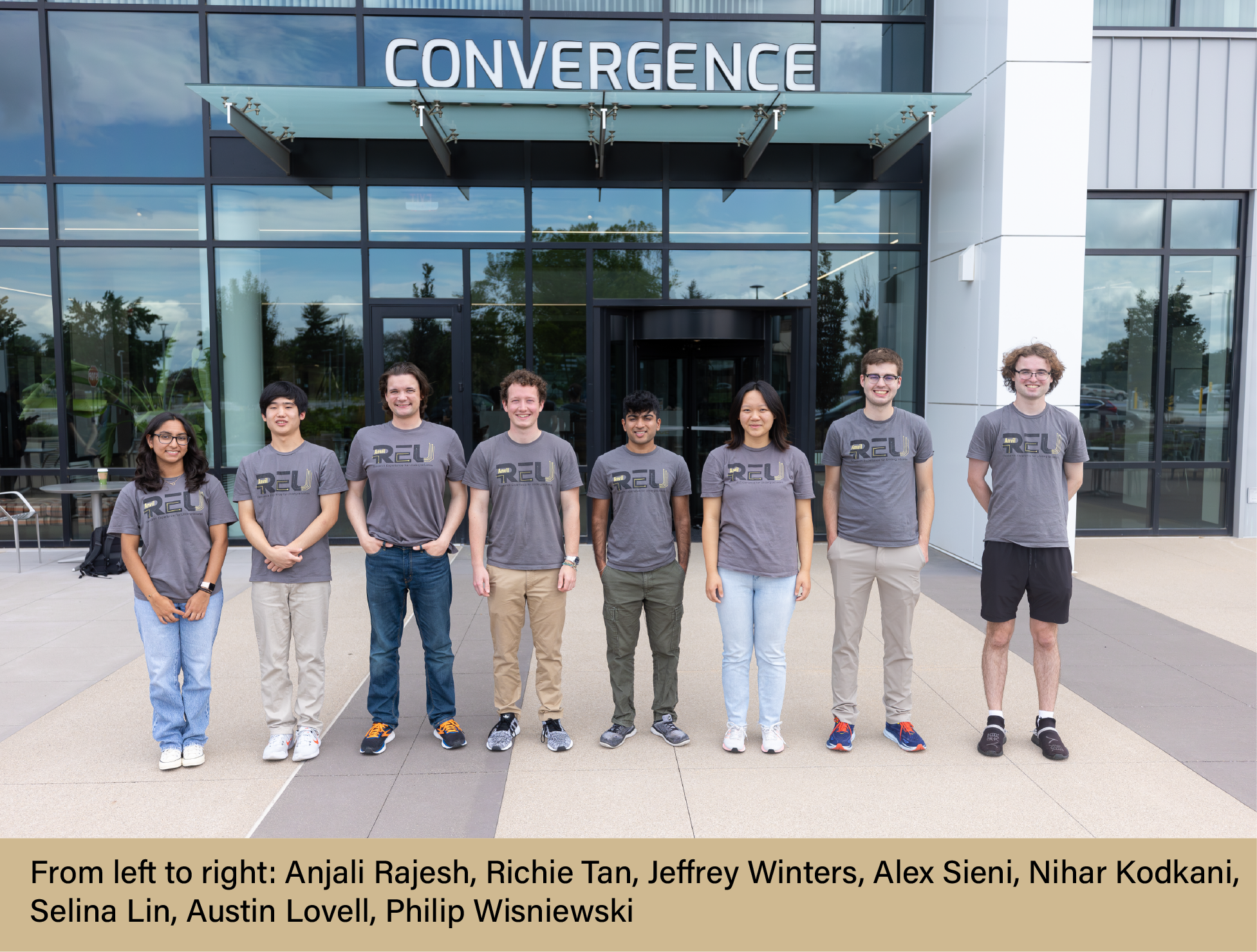
The Anvil REU program had the students join in pairs to complete four separate projects. These projects were chosen with real-world applicability in mind—the students would not only be gaining experience with HPC and learning new skill sets, but would simultaneously be increasing Anvil’s capabilities. Each project also had two mentors working with the students to help them achieve their goals.
Project 1:
The first Anvil REU project for 2024 focused on streamlining software and simplifying software deployment. Two students, Jeffrey Winters and Alex Sieni, teamed up to tackle this project under the supervision of their mentors, Amiya Maji and Robert Campbell, as well as Anvil Executive Team member, Rajesh Kalyanam. In this project, Winters and Sieni developed the Purdue Local ENvironment User Module (PLENUM) Pipeline. An ongoing problem that many researchers face when utilizing HPC resources is that the HPC system does not already contain the complex scientific applications they need for their research. This means they have to install the applications themselves, which is often tedious and requires technical skills. The PLENUM Pipeline was designed as a user-friendly interface that automatically generates modules for the researcher. Thanks to Winters’ and Sieni’s work, researchers can install complex scientific applications on Anvil with the click of a button.
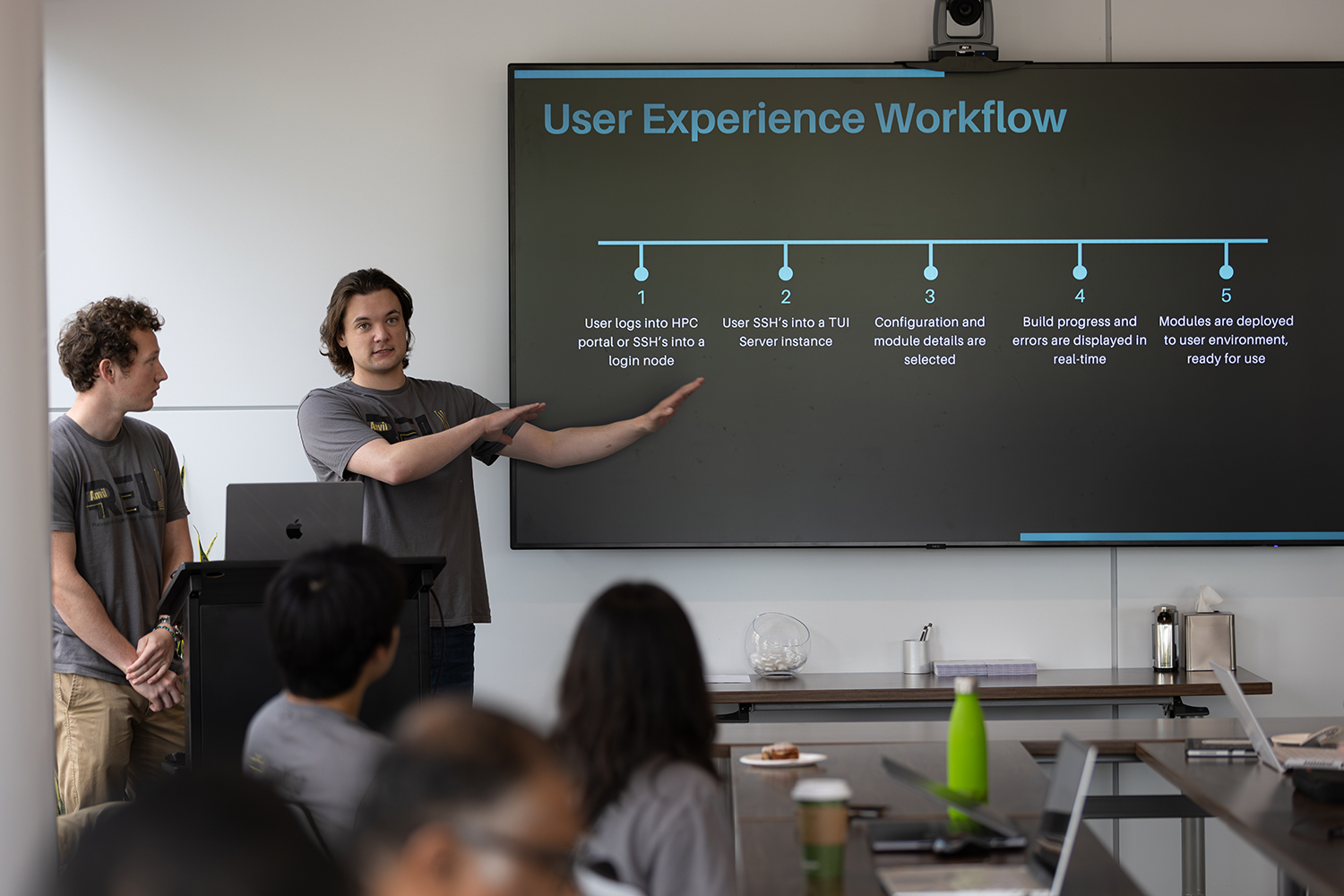
Project 2:
The second Anvil REU project worked on breaking down barriers to data and making complex data more accessible by creating a user-friendly dashboard. Anjali Rajesh and Richie Tan worked on this project under the supervision of their mentors, Guangzhen Jin and Rajesh Kalyanam, and Anvil Executive Team member, Carol Song. In this project, the pair developed an all-encompassing data dashboard for Anvil job usage. The dashboard has a user-friendly interface for viewing users’ jobs and allocations, and makes it easy for those who do not have knowledge of command line. The new dashboard provides detailed metrics and incorporates advanced data visualization techniques to highlight job distribution. It also assists with promoting efficient computing, alerting users of insufficient job requests, and helping them minimize resource usage and queue wait time without losing job performance. By creating this dashboard, Rajesh and Tan have given Anvil users the ability to effortlessly tap into relevant metrics that can help them understand how they are using their computational resources and how they can improve their performance without any coding or command-line confusion.
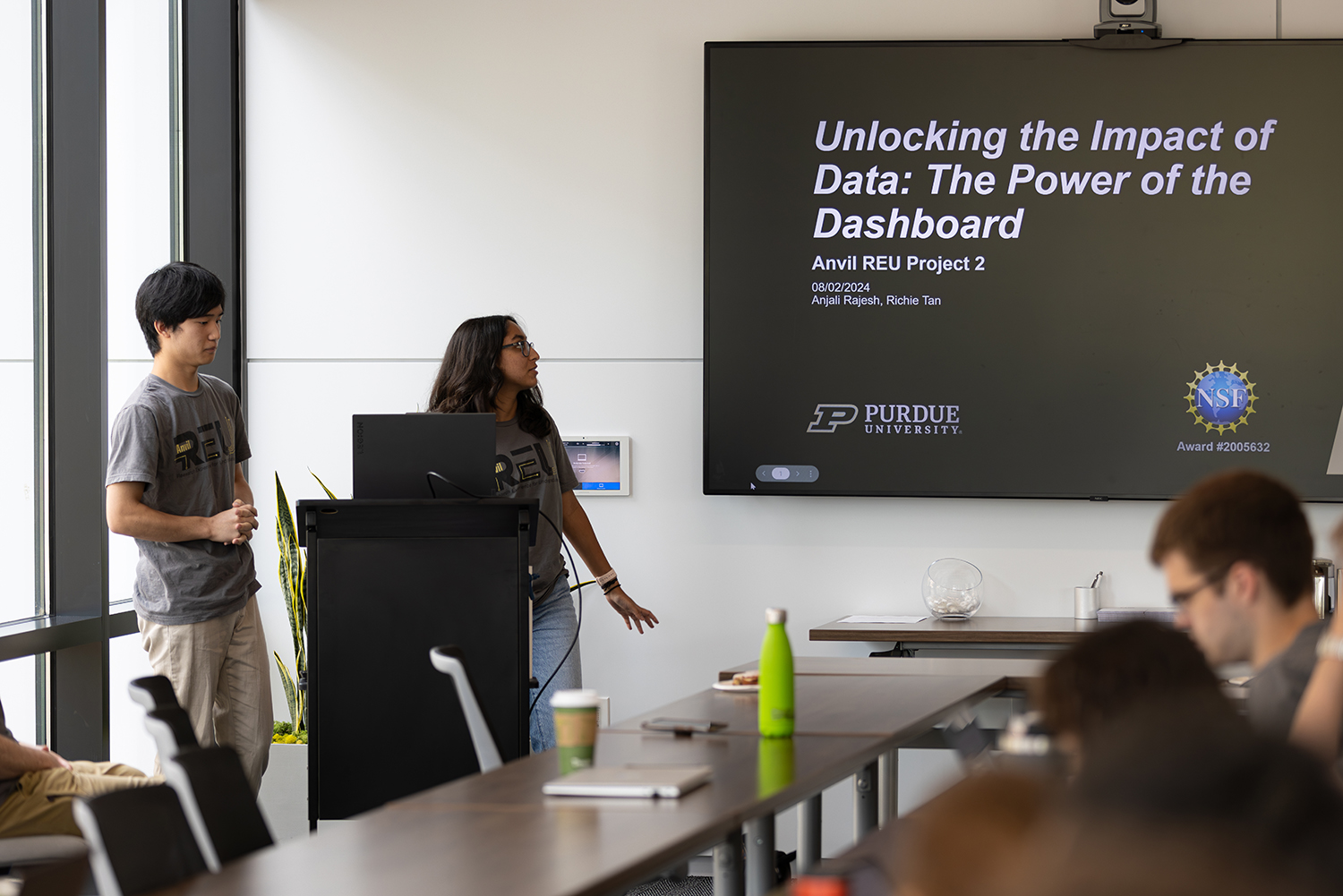
Project 3:
The third Anvil REU project focused on integrating Gromacs, a molecular simulations software, seamlessly with the Anvil Open OnDemand portal. Selina Lin and Nihar Kodkani worked on this project with their mentors, Nannan Shan and Jungha Woo, as well as Anvil Executive Team member Arman Pazouki. Gromacs is a powerhouse in the world of molecular simulations, primarily designed for simulating biochemical molecules. The problem comes with its high barrier to entry. Because of its reliance on Linux commands and a missing link for visualizing structures, Gromacs can often be confusing for beginner users wanting to conduct computational chemistry research. Lin and Kodkani set out to address this issue. The pair worked to integrate Gromacs with the Anvil Open OnDemand portal, lowering the barrier to entry for new users, and creating a one-stop-shop for Anvil users Gromacs needs. Thanks to Lin and Kodkani's work, users can focus less on learning Linux or searching for external tools, and more on actually conducting their research.
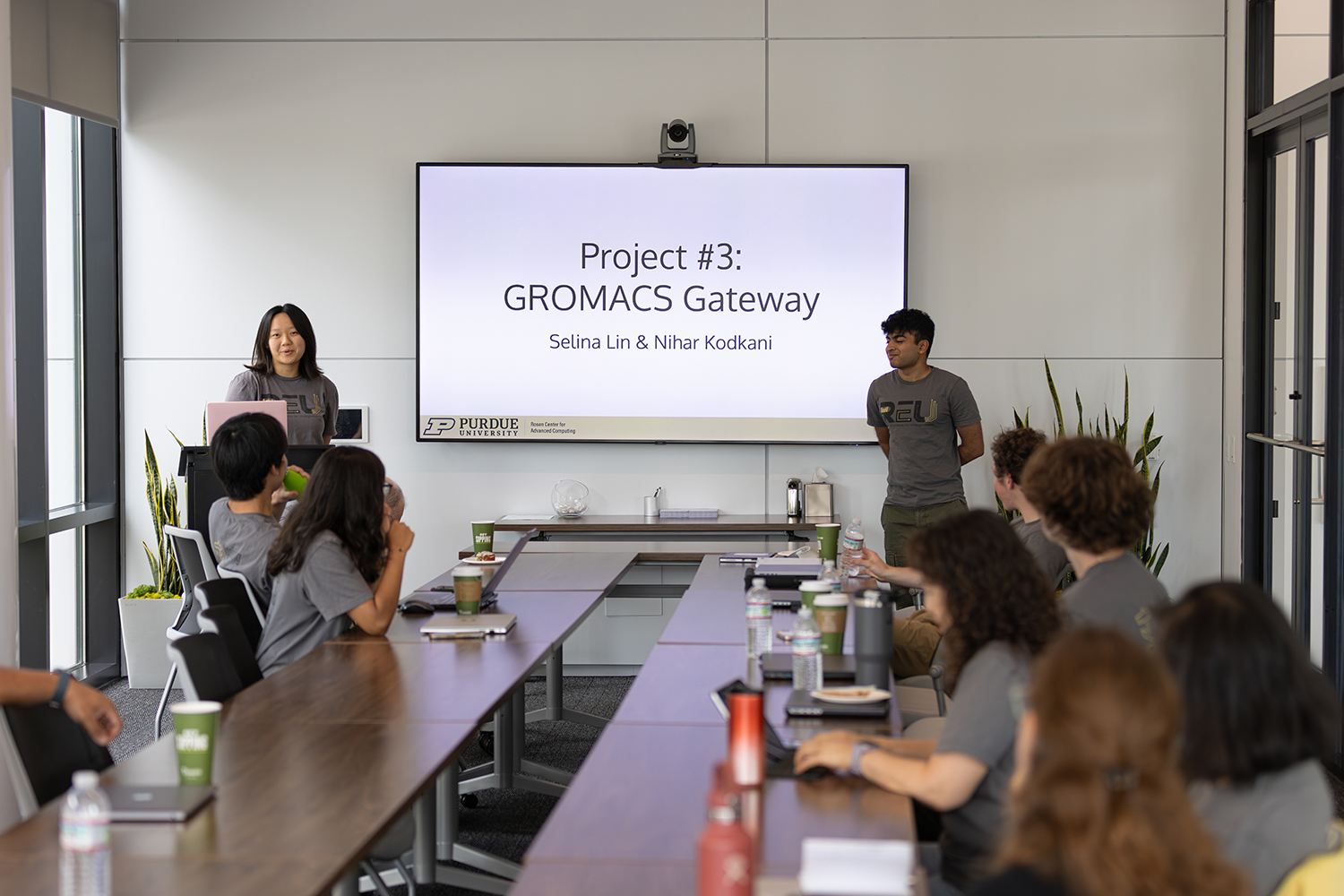
Project 4:
For the fourth Anvil REU project, Austin Lovell and Philip Wisniewski worked with their mentors, Sarah Rodenbeck, Ashish, and Anvil Executive Team member Preston Smith, to enhance user experience on Anvil through AI-powered operational data analytics. The pair wanted to create an AI model that could accurately predict job queue wait times on Anvil. Before this project was completed, Anvil users would submit their jobs and wait for the job to run with no way of knowing how long it would take to start. Naturally, there can be a large variance in job-start times, depending on multiple factors. This can lead to frustration, reduced productivity, and a loss of efficiency. Lovell and Wisniewski addressed this issue by creating a neural network classifier model and a neural network inference model to distinguish between long versus short wait times, and to give an estimation on how long the wait would be. Using approximately 4 million historic Anvil jobs, comprised of complex data with 40 potential features per job, the pair trained and tested their neural networks before developing and command-line interface tool. They then integrated the tool into Anvil's job submission functions. Now, users can automatically see wait time predictions from the model upon job submission, allowing them to plan for when their job will begin.
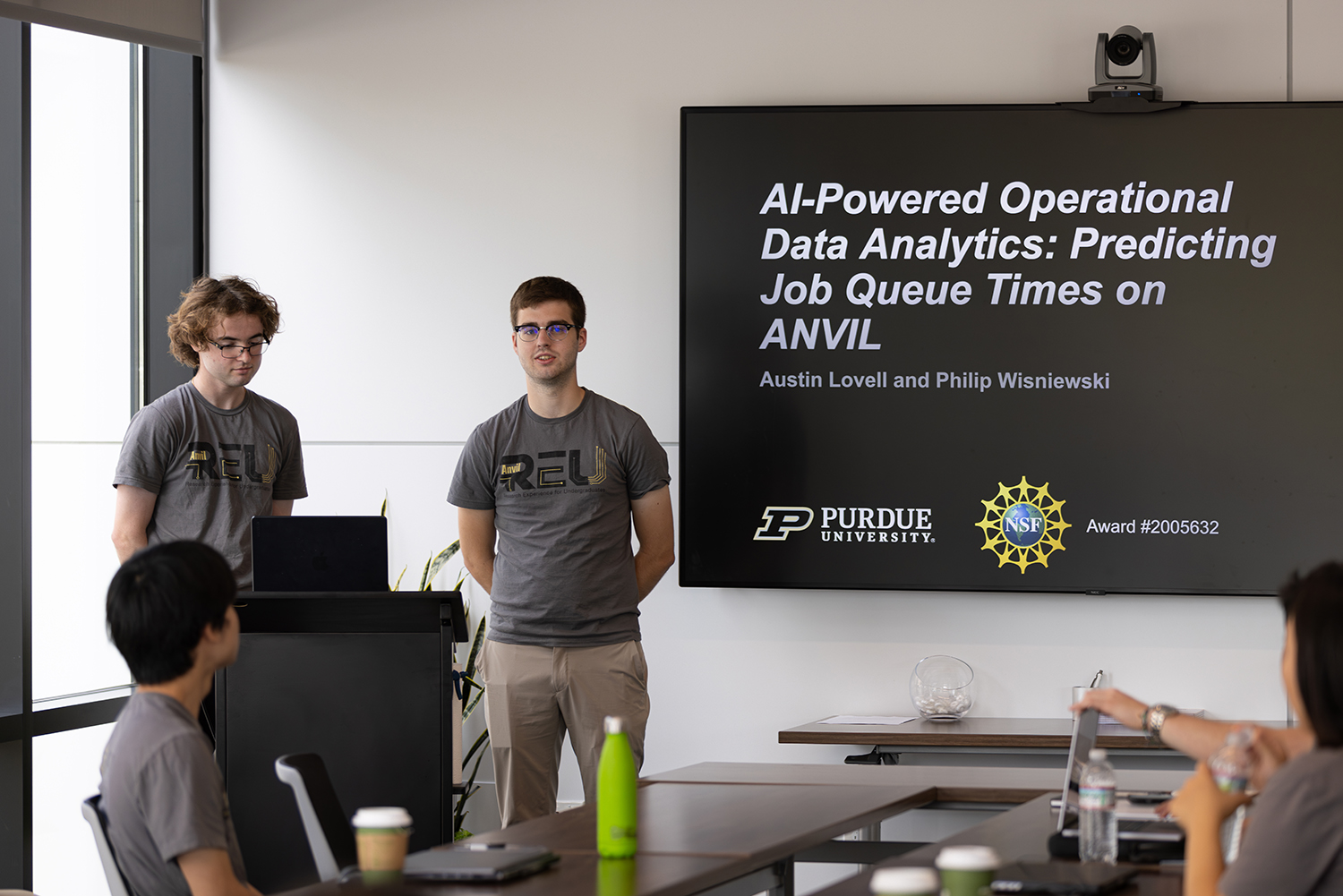
More than a summer job
While the Anvil REU students worked day in and day out all summer, this program was more than a temporary job—it was a completely immersive learning experience. The REU students had total access to their mentors and to all RCAC staff working on-site. On top of that, the students were able to take tours of the campus, attend presentations hosted by both RCAC and the SURF (Summer Undergraduate Research Fellowship) program, participate in technical workshops aimed at developing multiple skillsets (writing research abstracts, effective technical communication, etc.), and even attend the Practice and Experience in Advanced Research Computing (PEARC) 2024 Conference! The eight REU students also gave a SURF symposium presentation, where they received feedback and advice on all aspects of how well they presented their projects. Giving these students the opportunity to gain as much knowledge and experience as possible is a vital component of the Anvil REU program. In this way, RCAC can help to ensure that each one of the REU participants develops into a capable and competent cyberinfrastructure professional.
The Anvil REU program also scheduled ample amounts of time for socializing, fun, and relaxation. Thanks to the RCAC’s partnership with the SURF program, the REU students were able to attend multiple SURF Socials throughout the summer. This allowed the students to hang out with other undergraduates who were at Purdue for non-HPC-specific research projects, leading to the development of new friends while also increasing the students’ professional network. One notable social event was Movie/Game Night at RCAC’s Envision Center, where the students were able to watch movies and play video games on a massive 160" wide by 88" tall Matrix Tiled LCD display, lovingly known as “The Forge Wall.” Of course, the REU participants also socialized outside of these programmed events, but teaching them—by example—the value of having a positive work-life balance is an essential part of professional development.
Mission accomplished
On the final day of the Anvil REU program, the students presented their work to the Anvil team. As they demonstrated the results of their projects, each student discussed their accomplishments, obstacles, failures, and what they learned throughout the summer. The Anvil team then asked the students questions and gave them feedback on their work. Overall, these eight students made fantastic progress: they completed their projects, learned technical and people skills they will need when in the workforce, and gained an in-depth understanding of the world of HPC. In fact, since the conclusion of the 2024 Anvil REU program, six of the students have taken up student positions and continue their work at RCAC.
To the Anvil team, it was wonderful to hear how this summer might help steer the future careers of these students, many of whom indicated a desire to further pursue HPC as a career field. The RCAC staff was delighted with everything the students achieved and are confident they will be successful in future endeavors.
To learn more about the upcoming 2025 summer Anvil REU program, please visit our Research Experience for Undergraduates webpage. Applications are now being accepted. The application deadline is February 15, 2025, but may close earlier depending on the volume of submissions. Interviews for positions will begin in January of 2025.
For more information regarding HPC and how it can help you, please visit our “Why HPC?” page.
Anvil is Purdue University’s most powerful supercomputer, providing researchers from diverse backgrounds with advanced computing capabilities. Built through a $10 million system acquisition grant from the National Science Foundation (NSF), Anvil supports scientific discovery by providing resources through the NSF’s Advanced Cyberinfrastructure Coordination Ecosystem: Services & Support (ACCESS), a program that serves tens of thousands of researchers across the United States. Researchers may request access to Anvil via the ACCESS allocations process. More information about Anvil is available on Purdue’s Anvil website. Anyone with questions should contact anvil@purdue.edu. Anvil is funded under NSF award No. 2005632.
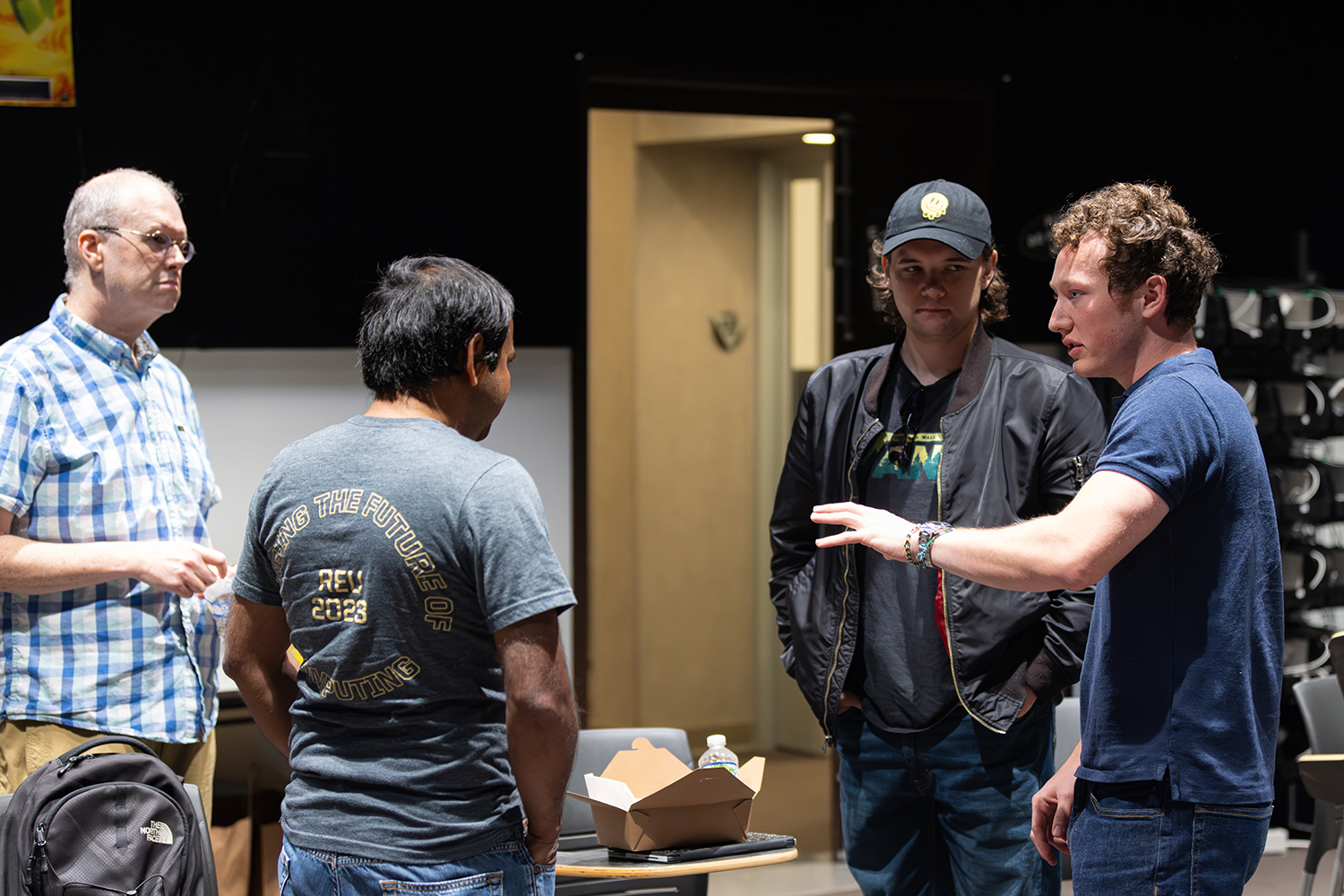
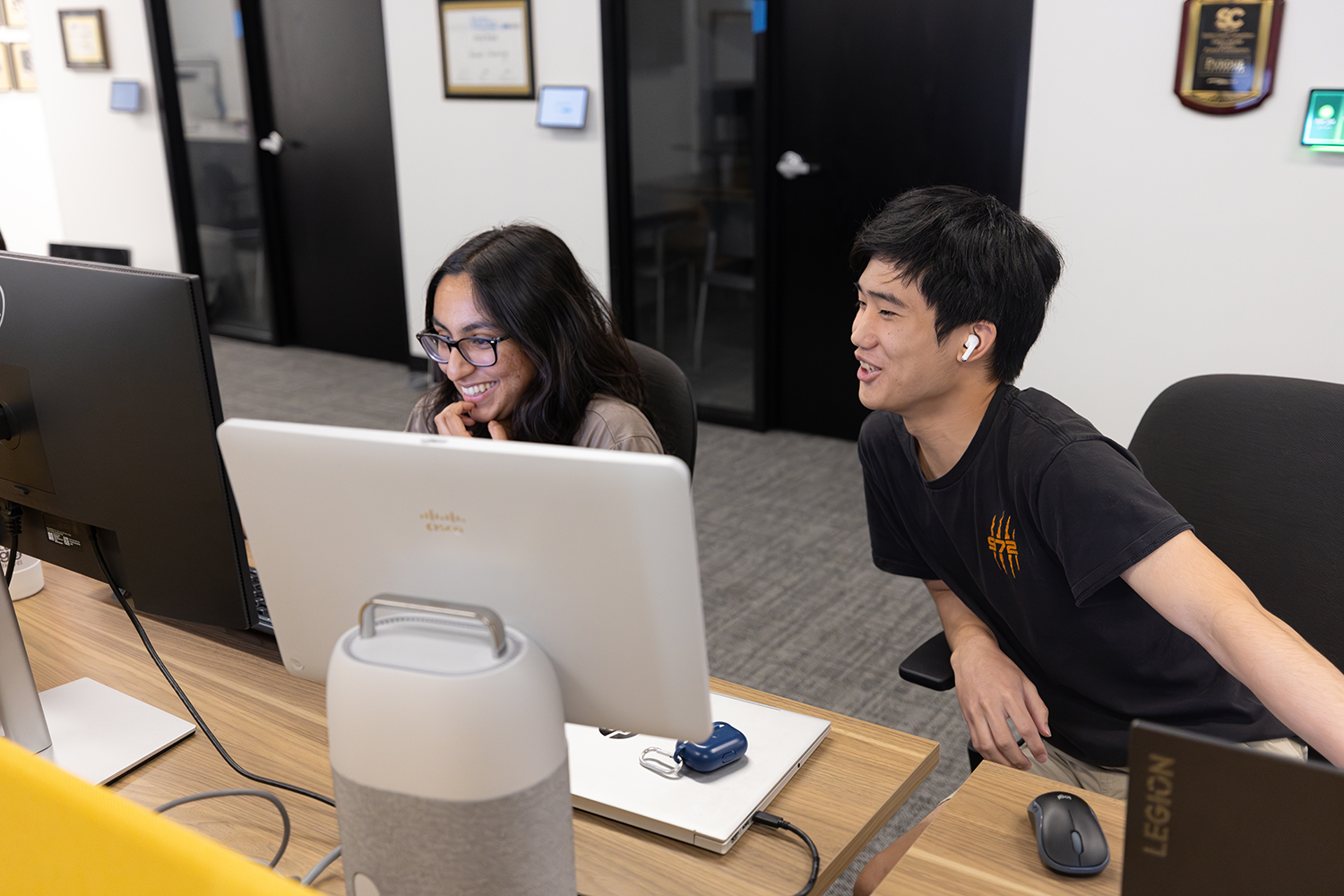
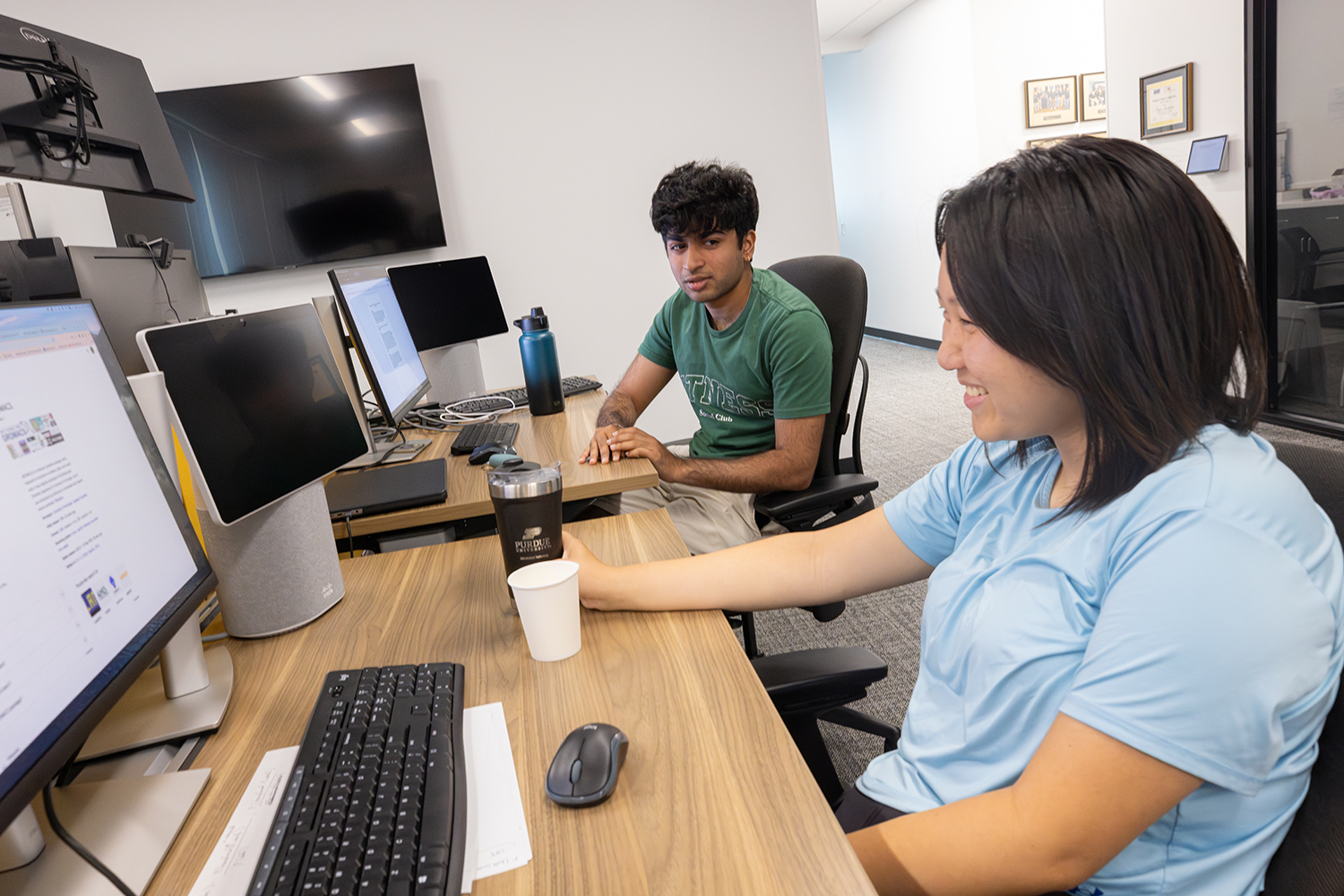
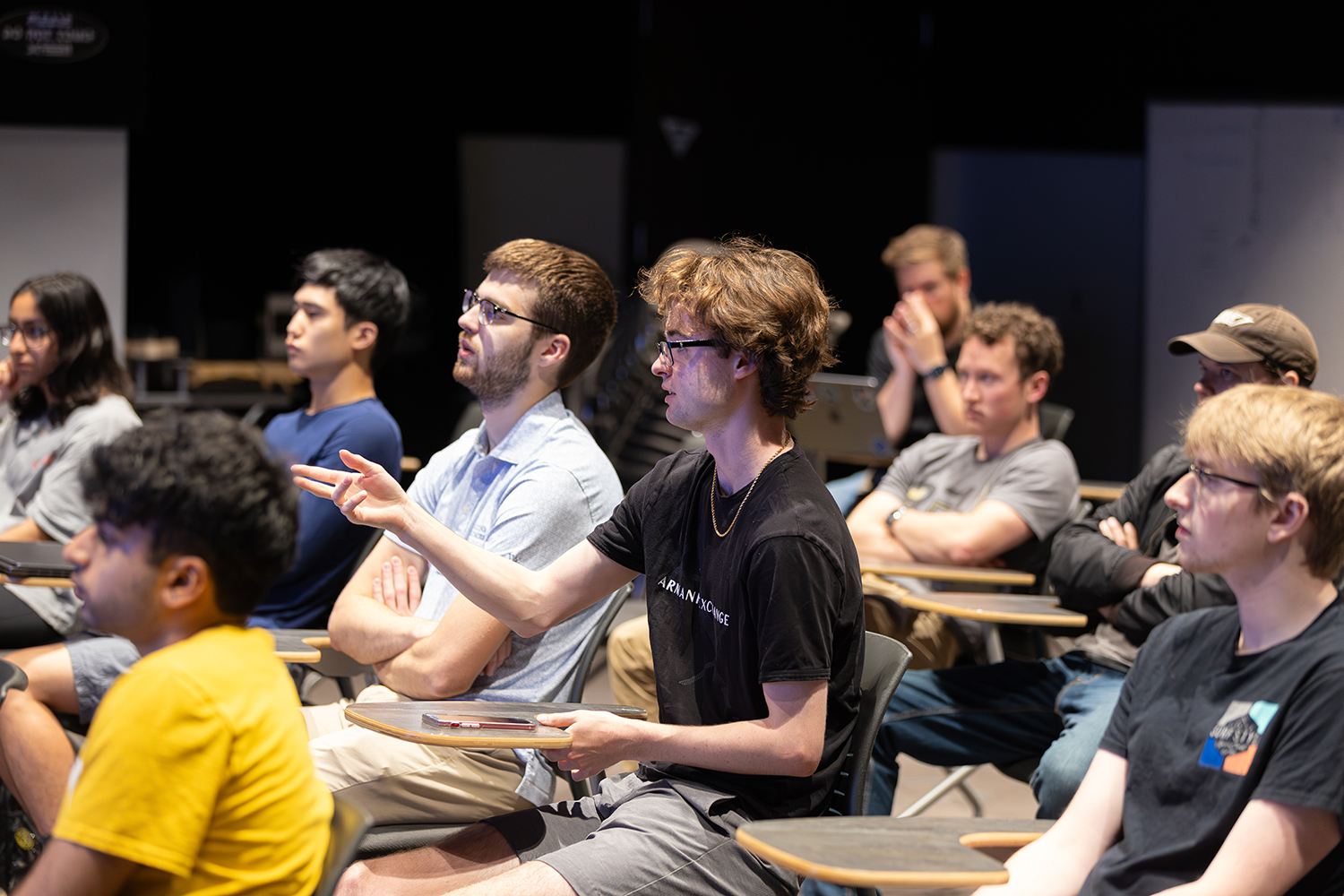
Written by: Jonathan Poole, poole43@purdue.edu
